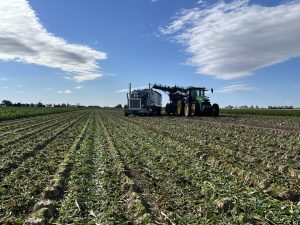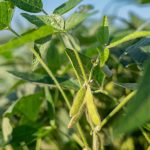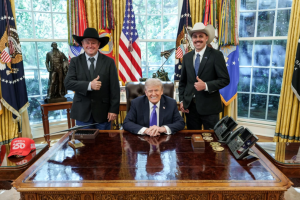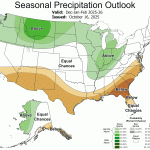Maude family receives purchase agreement, accesses land after 16 months
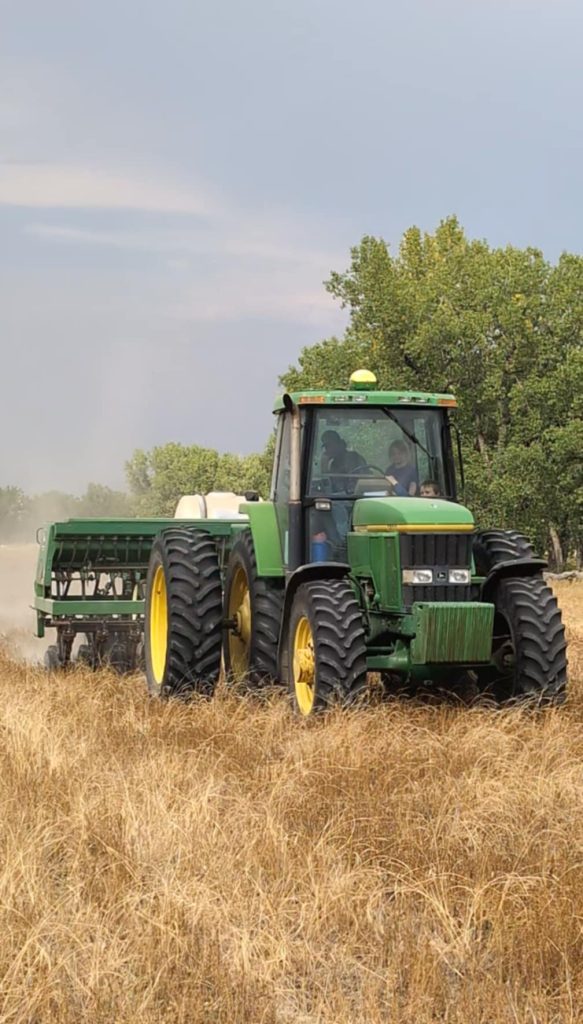
Maudes-RFP-110325
Along with the rest of the agriculture world, the Maude family celebrated the announcement this past April that the criminal charges against them had been dropped.
Still, a cloud hung over their heads: what will happen with the land and the ranch now?
This week, the sun shined just a little brighter on Charles and Heather and their son, Lyle, and daughter, Kennedy.
PURCHASE AGREEMENT
They received a purchase agreement from the federal government that, if both parties agree, will allow the Maudes to own the small lots where a fenceline might not follow the property line perfectly.
Heather Maude explained that the fence was put “in a practical location” which isn’t uncommon in the west. “Fences are put in places where they can be built and maintained,” she explained.
Maude said she felt a great relief when the criminal charges were dropped, but that she continued to feel uneasy. Civil charges hung over their heads and the land sat untouched for over a year.
The bottom land targeted in the charges consisted of probably about 20-25 acres (nobody knows for sure — an official survey has yet to be conducted) that had served as fertile hay-producing land for the Maude family for over 100 years. Upon notice of the criminal charges, in 2024 the Maudes chose not to harvest the hay barley on the land in question they had planted early that spring, and because of the uncertainty of their situation, the entire bottom went without irrigation in a dry year — further reducing their potential feed production.
In August of 2025 after both parties agreed to a permanent change to the grazing permit to allow for the continuation of existing practices from the U.S. Forest Service, Charles planted a forage winter wheat to be used in the spring of 2026.
“I’m happy I won’t go to prison, but from our point of view the agreement on the land is just as important. Our land is a part of us and I saw them try to move my husband from that land, which is a part of who he is.
“My husband and his family have cared for his land for five generations and being able to continue to operate this land is equally important to our own personal safety. A lot of people don’t understand that if they aren’t involved in agriculture,” she said.
When the purchase agreement is completed, Maude believes the last step in the process is: “How do we respond to the fact that the U.S. Forest Service unnecessarily brought criminal felony charges against us without practicing any due process to determine if we committed a crime.”
COULD IT HAPPEN AGAIN?
“We met with several attorneys after the press conference in Washington, D.C., and we had several attorneys interested in helping us. They said ‘you can use the U.S. Department of Agriculture and the USFS and the individual players involved in numerous ways.'”
Maude said lawsuits aren’t their idea of the best way to resolve conflict.
“That isn’t our first choice. What we would like is an assurance that we will have the opportunity to continue to farm and ranch in this location for another 115 years, without the fear of this occurring again, God willing our children and grandchildren have an interest,” she said.
South Dakota Speaker of the House and Republican candidate for governor Jon Hansen has personally seen the Maude and USFS fenceline and land in question.
He believes the criminal charges were ludicrous and a waste of private and taxpayer money.
He said the U.S. attorney, Alison Ramsdell, who signed the indictment, could have prevented the issue from being blown out of proportion.
President Trump’s appointee, Ron Parsons, was recently sworn in to replace Ramsdell, the Biden appointee.
According to Hansen, the U.S. prosecutor (Ramsdell in this case) could have determined that the facts of the case did not warrant criminal charges.
But as it was, with serious criminal charges staring them in the face, the Maudes were forced to hire private attorneys and spend time and money to defend themselves.
“The question really is, how should the U.S. prosecutor have handled a situation like this. Based on the facts, you have generations of a family working this ground, is it really appropriate to bring charges that could result in 10 years in prison or $500,000 in fines?” asked Hansen rhetorically. “Or is this something w should work out between the parties?”
Hansen said not only were resources wasted locally in hearings, attorney fees, etc, “This had to go all the way to the U.S. Secretary of Agriculture Brooke Rollins and the president of the United States to fix this. Those are important people with better things to do than bail out an innocent ranching family,” he said.
“It’s a lot of time and money wasted that never should have happened. They should have never been criminally charged in the first place,” he said.
USFS STAFF
Maude said that the USDA did conduct an internal review into the details surrounding the indictment, but that investigation was not done by a third party. She and Charles willingly participated in the conversation, but haven’t heard any follow up.
The Maudes were given information at one point that indicated that the USFS investigator, Travis Lunders, who initiated the first meeting about the fenceline and who personally delivered the indictment paperwork, had been transferred out of the area. Now they don’t know if this is the case or not.
“That’s one of the most frustrating components of this. I have to tell you, I don’t know (where special agent Travis Lunders is working). I don’t think it’s right that government employees are able to accomplish what they did and that I sit here on the other side of having criminal charges dropped and nobody is capable of telling me what the status is there. When a citizen has had this happen to them, I think it’s logical to ask where are these employees now. When I ask that question, I’m given blank stares,” she said.
At this point, the Maudes believe they need assurances that this won’t happen to them again.
“We are so grateful for the help and support from across the country,” she said. “We appreciate you following along as we try to resolve this in a manner that gives our family the assurance that this won’t happen again. But it’s important people are aware it’s not over just yet.”


